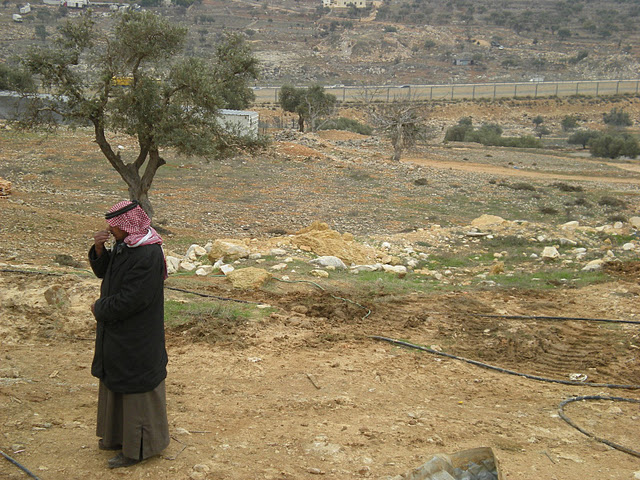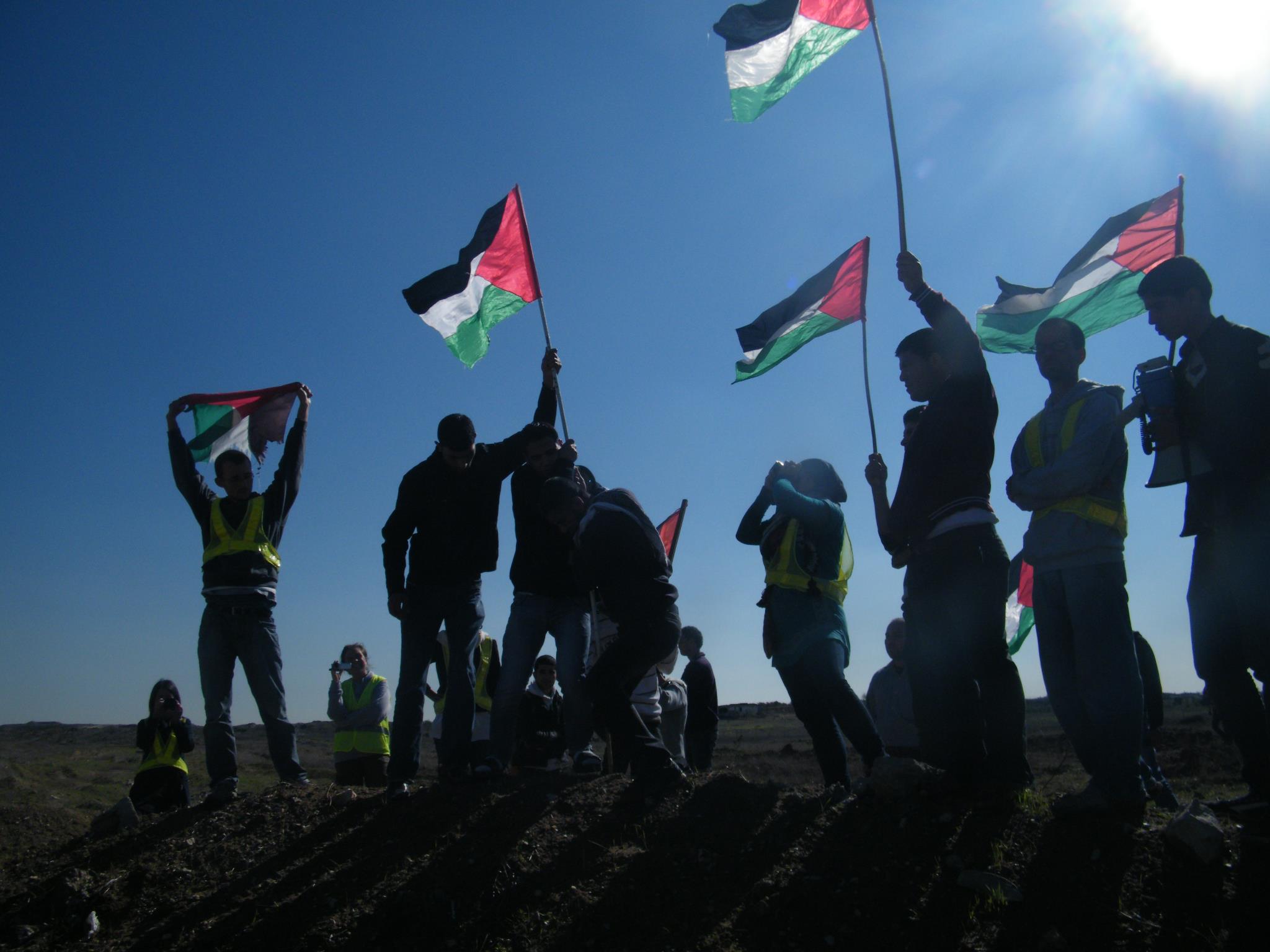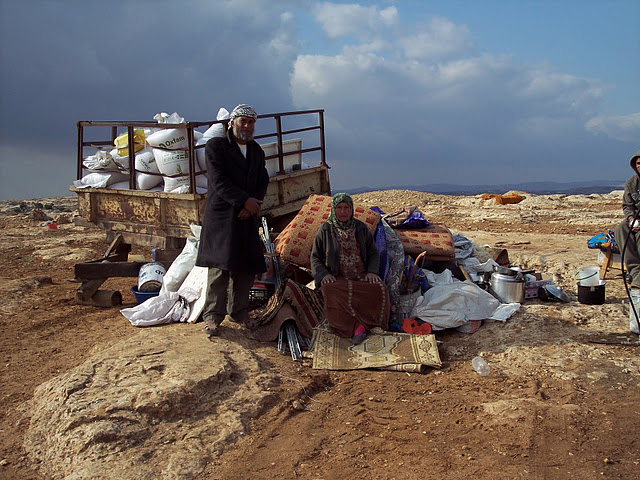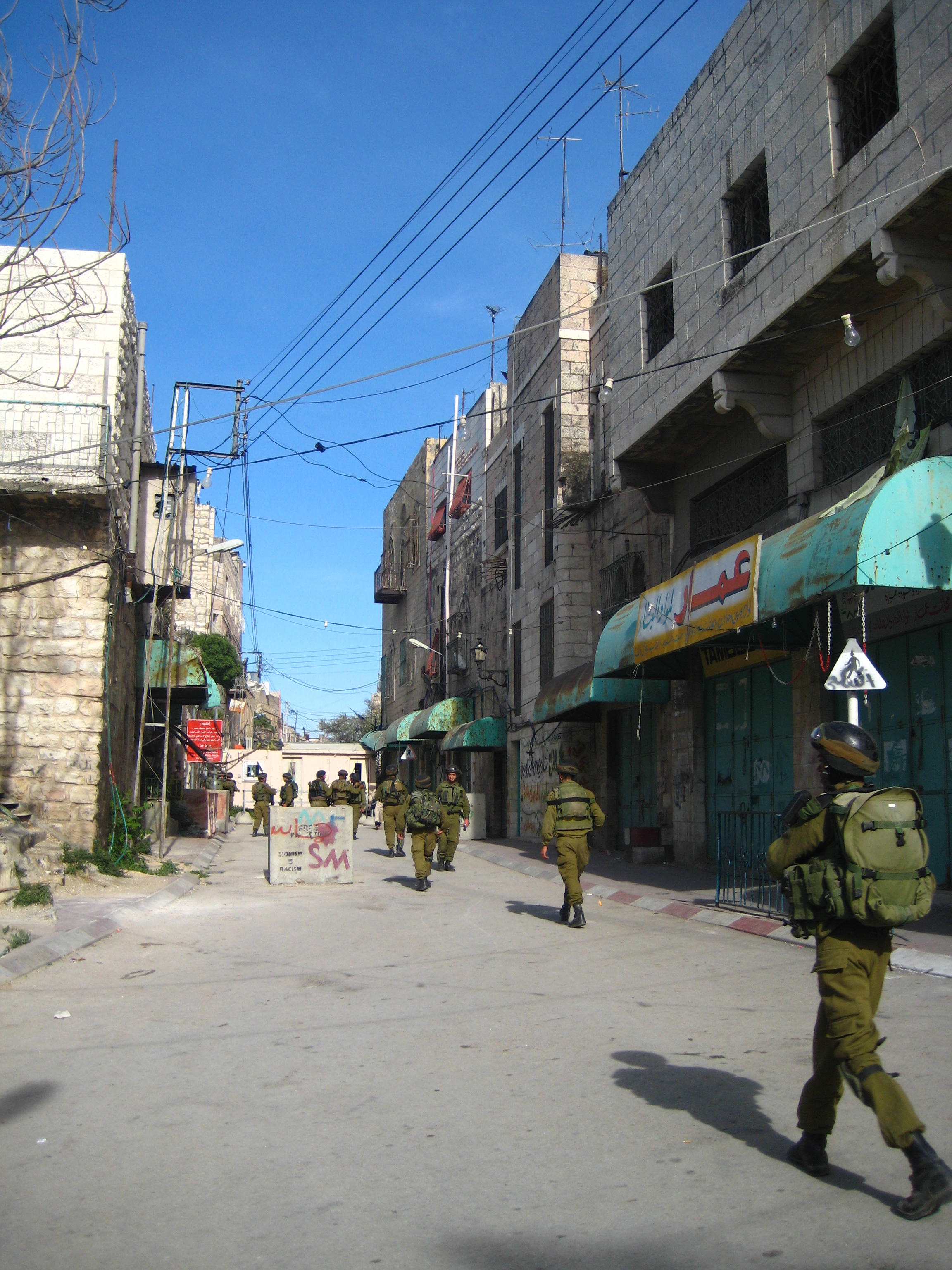Category: Reports
-

Beit Hannina: House demolitions without warning
25 November 2011 | International Solidarity Movement, West Bank At 11 AM this Thursday the 24 of November, Mohammed Ka’abne and his family of Beit Hannina, were shocked by the arrival at their doorstep of an Israeli military unit accompanied by several police officers and two bulldozers. Without issuing any kind of eviction order, or…
-

Following night raids, Nabi Saleh continues to march for justice
by Aida Gerard 25 November 2011 | International Solidarity Movement, West Bank The Occupation Forces invaded An Nabi Saleh village three times injuring several people by shooting directly at demonstrators with tear gas canisters and rubber coated steel bullets on Friday, November 25th. Three people were arrested Wednesday in a night time raid earlier in the…
-

No go zone protest in Beit Hanoun
by Nathan Stuckey 24 November 2011 | International Solidarity Movement, Gaza We gathered in the road in front of the Agricultural College of Beit Hanoun, the same place that we gather every week. There were about forty people, members of the Beit Hanoun Local Initiative, the International Solidarity Movement and citizens of Beit Hanoun. Like…
-
Four houses and one mosque fall to Israeli demolitions in Susiya
by Fida Far 25 November 2011 | International Solidarity Movement, West Bank Four houses and one mosque were destroyed this morning, November 24th, in the villages in the south of the West Bank. Around 10 am, fifty soldiers and seven police cars arrived to village Susiya. Two bulldozers destroyed the house of Musa Magna’s family…
-
Political organization, resistance, and education in Israeli prisons
by Alistair George and Ben Lorber 24 November 2011 | International Solidarity Movement, West Bank Raed Atrash, 25, is a presenter and journalist working in Hebron; his work focuses on prisoner’s issues. He interviews prisoners, ex-prisoners and their families, and he writes articles and presents programmes on the issue. Issa Amro is the director of…


